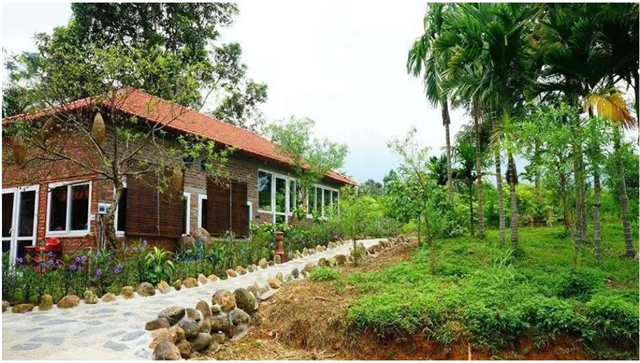Ha Noi People’s Committee has founded a working group to inspect and handle violations of land regulations at farm stays in the capital city.

Ha Noi People’s Committee has founded a working group to inspect and handle violations of land regulations at farm stays in the capital city.
The move came after the Ministry of Natural Resources and Environment asked localities nationwide to carry out inspections to ensure all farm stays were operating legally.
The capital city will compile a list of farm stays and identify those violating land laws, clarify violations and raise quickly put things right.
In addition, planning for farm stays would be developed to ensure they comply with socio-economic development.
Prime Minister Nguyen Xuan Phuc recently asked for a legal framework to be developed early to ensure prevent negative impacts on the business and investment climate.
Currently, there was a lack of legal framework for the operation of such accommodation although this model was booming in some localities.
Le Hoang Chau, president of the HCM City Real Estate Association, said the problem was that farm stay projects were mostly developed on agricultural and forest land and that organisations and individuals illegally divided agricultural and forest land into lots for transactions and for developing farm stays without permission.
In a recent document submitted to the Government, Chau proposed banning the splitting non-residential land into lots to prevent the illegal development of farm stays.
Chau stressed that farm stay was a new tourism property product which was rising to meet market demand, adding that it was necessary to develop the legal framework to ensure its on-track development.
According to Doan Hong Nhung, from the Viet Nam National University, Ha Noi, some farm stays were illegally split into lots for lease or sale together with commitments about conversion of land use purposes from agricultural and forest into residential land or attractive profits.
Nhung stressed that the model needed a proper legal framework, like condotels and officetels, for healthy development and harmonising rights of related parties in the market. — VNS





